By Shkëlqim ABAZI
Part One
SPAÇI
– The Grave of the Living –
Tirana, 2018
(My own and others’ memoirs)
Memorie.al / Now in my old age, I feel obliged to confess my truth, just as I lived it. To speak of the modest men, who never boasted of their deeds, and of the others whom the regime silenced and buried in unnamed graves? In no case do I take upon myself to usurp the monopoly of truth or to claim laurels for an event where I was only accidentally present, although I desperately tried to help my friends, who tactfully and kindly avoided me: “Brother, open your eyes… don’t get involved… you have only two months and a little left!” A worry that clung to me like an amulet from the morning of May 21, 22, and 23, 1974, and even followed me in the months that followed, until I was released. Nevertheless, everything I saw and heard during those three days, I would not want to take to my grave.
A reddish and bear mountain, perhaps from the corrosion of pyrite concentrate or a curse from God… had been encircled with barbed wire fencing…! O God, if you were to dig in the darkest corners of HELL, you would hardly encounter such a panorama! There were only two seasons, a long winter and a dry summer, the short autumn was rarely noticed, it passed like lightning, because the trees were stripped bare and it immediately merged into an extremely harsh winter. In the cold months, the sun rarely appeared and was a sight to behold in those crevices; even on the most beautiful day, the rays did not shine for more than three hours.
That gorge did not blow like everywhere else, but its bends turned the flow into a pressure-driven tramontane (north wind). The wind roared furiously, like a giant bellows, from the torn hole in the orbit, at God knows how many kilometers per hour. During the rainy season, the world’s clouds would gather over the imprisoned sky and pour down unseen amounts of water; lightning would rumble, and thunder would roar, taking your mind and head, while torrents tumbled down the steep slopes, snatching up dark stones and soil and crashing them with a clamor into the bed of the collector stream. The seasons suddenly replaced each other, today darkening under the sun, tomorrow waking up to ice.
…“In ancient times, God sent His trusted one to notify the place, to mark it and to plant a church wherever he saw people. God’s envoy traveled through Mirdita; wherever he saw life, he drove a stake, and even where he didn’t see a human foot, but here his eye only caught axes, just to gawk…! He saw only mountains and mountains, rocky cliffs, ravines, chasms, abysses without a drop of light and bare trees. Everywhere in Mirdita, they built a church, but not here in this desolation. The mountains darkened, they shook, and the rock began to weep tears of pity…! ‘Forgive me, my Enlightened One, I have gone all over Mirdita, and I haven’t seen a single soul there, only hollows, caves, pits, abysses, landslides, ravines; neither sun nor moon shone upon this barrenness! I did NOT FIND anything [S’PAÇ]!’ – The culprit defended himself. – ‘I don’t know what you will do, but I want this matter fixed!’ – The Great One ordered him. – ‘Well, upon my word, now I will turn it into a prison, for the Titans!’ It was said and done! That’s why, for so long, it was called ‘S’PAÇ’ (I DID NOT FIND), and only recently has it changed: ‘The Titans’!”
…And everyone who passed by had to turn their head away, lock their mouth, wax their ears, close their eyes, and repeat the refrain: “S-P-A-Ç! S’PAÇ! I DIDN’T SEE [S’PASHË]!” Even if they had accidentally seen…! SPAÇI! Where the serpent shed seven skins. Waiting for the improbable. The place spawned rumors, rumors, and rumors… which had become sustenance. There, expected revolutions and counter-revolutions were conceived, the fall and rise of cabinets, coups and state d’états, royal intimacies, and the flirting of first and second ladies…!
When the work on the enrichment plant site was nearing completion and there was no hope that we would be allowed to rest, a solution would inevitably be found. By this, I mean productivity, and by productivity, the expectation of free labor. The caste had based the prospect of realizing, or not realizing, the five-year plans on the muscles of political slaves, considering us as guaranteed animals.
The endless and pointless gossiping was an old tune in prisons. The idle oracles, who had multiplied excessively, predicted imminent transfers, even specifying the destination and the individuals…! We easily guessed the place where we might end up, because only two camps were on the agenda at the time, Spaçi and Ballshi. In the first, they locked up about five hundred convicts, who were hastily transferred from the Elbasan cement factory, and after two years they were exhausted, tired, and depleted, just like broken-down horses that collapse before reaching the nearest inn, where they expected to be replaced by new stallions. While in Ballsh, it was said that the giant deep oil processing plant would open, where they would send the convicts from the Vlorë salt pans, after sifting and separating the strong slaves from the languid nags; the former would be sent to Spaç, and the remainder would be mixed with the elderly of Reps, squeezed dry, and left to die like dead horses, to be buried in the graves of Panahor. But, it also happened that they banished us to some never-before-heard-of camps.
Regarding the “separation,” the oracles had found the cure; based on age and physical condition, they “appointed” someone to Spaç, another to Ballsh, and the rest to a third location. The Cassandras completed the summation based on the immediate needs of the state, so much so that you’d think they had compiled the nominal lists themselves. Among others, they had “planned” me too, with the group that was predicted to move soon. A chiromancer declared to me, after observing the lines on my palm: “You ate the holes of Spaç, man!” This prediction did not sway me. For two years, I had been followed by the blabbering and prophecies of coffee cup fortune tellers, as well as interpreters of nocturnal dreams. I was disgusted, because, according to them, I should have been released several times, on the eve of every Party or national holiday.
Initially, I also lulled myself with the cradle song of dreams of freedom, but I gained the consciousness to separate reality from hallucinations. As months and years passed, I judged these nonsensical things to be a waste of energy; I ignored anyone who ventured down those paths, remembering Uncle Esheref’s maxim: “Prison dreams are like a monk’s farts, little one!” I didn’t care about them and dedicated myself to learning French, studies, or extracurricular readings, which consumed my free moments. Coexisting with uncertainty was viewed with normalcy in the violent and abnormal environment, but a reversed normalcy, which grew with the years. As the anomaly continued, the gossiping increased. The logic of the Cassandras, based on illogic, and the phrases: “You ate Burrel, you grabbed Spaç, or camp X!” far exceeded the limits of anomaly and could be classified as: “Prison Science Fiction.” But the last case seemed to hit the mark. One September morning, the enigma: “Transfer,” was disrupted by the whistles of serpents and the howls of the town crier.
Before closing the morning commitments, an employee of the technical office with a sheet of paper in his hand occupied the head of the square, while the town crier repeated in a loud voice: “The persons below will not go to work!” The list followed: Esat Kalaj, Sefedin Juniku, Shyqyri Gruda, Xhelal Canko, Shtjefën Lacuku, Sabri Koçi, Pavllo Popa, Petrit Hoxha, Franko Sara, X, Y, etc., etc., among them me, Ladi, and even Malua himself. Without appendices or supplementary clarification, the news spread through the Fan valley. The expected was happening! We said goodbye to our friends who were going to work, for the sake of the six qindësh [six hundred grams of bread], time was pressing. Regret overwhelmed me, as I recalled the day two years prior. The men I was being separated from welcomed me kindly into the unfamiliar environment and gave me the chance to feel equal in the big family. My heart was not accepting the moment of farewell; it was as if it predicted that I would not have the chance to meet them a second time, and a lump of emotion tightened my throat, I exhaled: “O God!”
Reps, compared to similar places, had a relatively small number of prisoners, almost like an average village isolated from the world, where you knew the other person’s guts in their belly. Because the shell was missing there, life flowed transparently within the quadrangle where three hundred men pushed their existence and were destined to exchange glances hundreds of times a day. When I arrived, I was almost a child. God offered me a cluster of old men, who warmed me in their bosom and nurtured me with the missing love. They, prison experts, would lead me on the paths of hell, would inject the self-confidence that influenced self-control, would increase my self-assurance, and would push me to adapt to the unusual environment.
The impossibility of meeting them again hurt me immensely. When I considered their old age, their physique ravaged by diseases and mutilations acquired in the prison ordeal, the chance of a reunion equaled zero, and the separation equated to oblivion. I returned to my bunk with the dilemma: “What next?” The veil of pessimism rattled my brain, dried up the present, and spread an even blacker curtain over tomorrow. I lay back on the bunk, and my childhood appeared before me. In the old visions, a swallow’s nest, sewn with mud and blades of grass, stood out on the porch of the old house. I rejoiced in that shelter, where the birds came and went, carrying balls of mud and fragments of grass with their fragile beaks. I called them my swallows and did everything to get closer to them. When a speck of mud or a blade of grass fell to the ground, I fixed it in the crack of the cane and placed it carefully, so they would not distinguish whether they had patched it with their delicate beaks or me with my stick.
The nest took shape, and the two birds circled it with chirps of joy, hovering with their small heads turned towards each other, landing with the delicacy of a butterfly, repairing something, kissing beak to beak, and flying away only to return shortly. After a few days, one of them was not leaving the nest, and I thought perhaps it was sick or injured. I would stick insects on the tip of the cane, and I reached out to feed it, but it saw the stick and flew up. I left the food near the edge of the shelter; it returned, swallowed the fly or the ant, and emitted joyful chirps in gratitude, then settled back on the nest. After a few days, my presence no longer bothered it, although it would flutter and spread its wings when I approached the nest, it would hover, grab the insect, and chirp without its former shyness.
Soon, I made friends with the other one too, which almost landed on my shoulder with shrieks of joy.
After a while, I saw some eggshells on the cardboard I had laid out to catch the droppings. I zealously gathered them like an archaeologist and managed to form two whole shells. The swallows hatched their young. Above the edge of the nest, two downy heads stretched out, buzzing with yellow beaks. Weeks rolled by. The swallows continued their up-and-down pirouettes, while the down on the bodies of the little ones was replaced by small feathers, then larger ones, until I couldn’t distinguish them from their parents. The quarrelsome ones didn’t stop chirping from morning till evening. Their chirping woke me up at night; I would go out and catch an insect in the garden and serve it to them with the tip of the cane, but the newly feathered ones would push each other on the walls and try to make room for them, pushing their brother or sister out of the shelter.
When they were small, they huddled close to each other, but now, being grown, they no longer felt comfortable. The nest, once spacious, could not hold them; they stretched their wings, unpracticed in flight, but clung with their claws to the edge of the uncertain wall, pondering the enigma that awaited them beyond the shelter, closing their wings and sheltering deep inside. The one that ended up outside frantically flapped its wings, made a turn a few meters away, and returned with shrieks of terror, suggesting that the celestial unknown frightened it and it rejoiced in the warmth of the shelter when its claws grabbed the dry mud.
Despite the parents’ maximal dedication, they did not feel full. I increased my efforts; besides worms and insects, I threw them a handful of crumbled rice or wheat on a plate next to the nest, but the gluttons gorged themselves on free food and continued their quarrel more loudly. I thought this coexistence would last forever; I couldn’t believe that one day they would abandon me. But one day, they were not there. The nest fell silent. The unexpected silence stunned me. Due to time or the weight of the birds, the mud had begun to crumble. I looked up at the rafters; the mud was more crumbled than the previous evening, and the nest was empty. The birds had fled!
O God, what despair! The emptiness caused me the sensation of a lifeless world, of an abandoned house where death had settled cross-legged.
I felt betrayed by my winged friends. I grabbed the cane and crumbled the mud that remained behind the wall. The lumps crushed on the hard floor and turned into dust. A dark mark remained on the wall, like a relic of the former life, while the dry droppings blackened the cardboard bedding, as if giving meaning to the expression: “The son or daughter left their droppings on someone!” “Why are you acting so foolishly, son, you’ve made our yard a spectacle?” – My grandmother scolded me from the opposite balcony. “They left without saying goodbye!” – I complained, and a tear rolled down my eyes. – “Who?” – The old woman worried: – “Ah, the swallows… you’ll have them here again in the spring, my son!” – She added when she understood what I was fretting about. – “Calm down, my dear mother’s son!” – And she embraced me. I fed them; they left their droppings on me! – I sobbed and crumpled the cardboard with the tip of the cane.
“No, my son, swallows are faithful; they make droppings, but they don’t leave their droppings on anyone! People leave their droppings on you!” – And she continued to stroke my head. When the moment came to break out onto the rocks of life, I understood the truth of that philosophy. It was true: people would “leave their droppings on you,” they would muddy you, smear you, betray you, torture you, and take your honor and your life. But, at the same time, they would become wings, they would support you to leap over the foam of the waves, they would show you the zenith when you saw the nadir, they would…!
“Have you lost it, my son?!” “Excuse me?!” – I jumped up startled, hitting my head on the ceiling fiber. “Why has this shadow of sorrow fallen upon you?” – Uncle Dauti asked from the corridor. – “Move, you never know what will strike these people!” I descended the stairs and embraced the good old man. – “Thank you for opening my eyes!” – And I teared up. “Oh-h-h, how much road you have ahead of you, my son!” – he lowered his head and left. I followed him out…! Now I would have to fend for myself. I would not have near me those who became a mother and father to me in difficult days; I would miss their advice when I made mistakes, their direction when I lost my way, their calmness when I rattled like a gypsy’s rifle.
Until then, it had been easy; they decided, and I submitted and followed their orders. The pain of the days of my arrest, when I was violently separated from my relatives, was repeated, but this time with different symptoms: “O God, I hit rock bottom!” and I felt withered like a year-old lamb. I was being separated from Daut Runa, Uncle Esheref, Father Raçka, Miçua, and others; I was being cut off from my teachers, who, with the pride of being socially useful, transmitted culture and education, even though socialist society had discarded them as “decadent educators.”
They separated me from Vangjel Kule, the sweet-spoken geographer, whom I would meet again in the hospital in Tirana, twenty-two years later; from Rich the American, whose bones would be lost without a trace in Shën Vasili prison; from Hodo Sokoli, whom I would meet closely in Spaç, but after the revolt of May 21, he would be re-sentenced, and I would not have the chance to see him; from Agim Musta, the history professor, whom I would see again after a few months; from Father Zefi, the catechism professor, whom I would meet again in Spaç, but we would be separated again, only to meet after the fall of communism; from Dom Marku, the professor of wisdom, whom I would never encounter alive; with the philosopher Hilmi Leka, and others.
I would never meet some of them, while Sefedin Juniku, Shyqyri Gruda, and Hafëz Sabri Koçi would be my traveling companions. Since no one likes to leave unfinished work, they provided me with letters of recommendation for their colleagues. Since the destination remained a mystery, they gave me letters for Spaç and for Skrofotinë. I hid some under the lining of my sandals, read and burned the others, then thanked my teachers for their sacrifice; I wished them a quick reunion with their families and we parted.
When those who would still toil in this construction site left for work, we were left with the “six hundred grams of bread.” Since they did not clarify further actions, the old men evoked the past, by analogy, precedents, although they did not mention the transfer, they implied it and advised us to pack our things: “Men, gather your rags, because these people won’t give you time!” We took sacks from the warehouses, tied our few rags, and sewed on the labels; we rolled up the bunks and blankets and tied them with wire. We piled them in the middle of the corridor and plunged into our worries. When the empty spaces across the bed grinned at me, just like lost teeth in a torn mouth, my heart sank, and the emptiness, which caused me pain, overwhelmed me.
Devil’s Mentality
I experienced movement in prisons a year ago when they snatched me up abruptly and took me to Burrel, but they brought me back quickly, and I found almost all my old acquaintances. This “journey” left me with the taste of a painful and torturous training. This time, however, I sensed that it was completely different; perhaps it would be the last, and either my bones would be lost in some gallery hollow, or I might be released, if I were lucky, not to be sentenced a second time. I had a premonition that the wide-mouthed mines, which were an extension of violence, would not pass without consequences on my physique and mentality, as they had on thousands of fellow brothers who were jammed into the infernal holes over twenty-two years, the shadow and scar of which would follow me for life.
The prime minister’s boasts on the inauguration day marked the date. With the colossal investment in the mines, Mehmet Shehu had in mind the dark days that awaited the political prisoners. Naturally, by “investment” he meant the capital that the budget poured out for fencing several dozen hectares of mountain with double barbed wire, the expenditures for thousands of concrete and wooden poles, the expenses for the electrical network that would feed several hundred projectors and lamps across the entire face of the mountain, plus the expenses for mobilizing several hundred police officers and soldiers, for whom lodging, food, money for clothing, and salaries, however miserable, were needed—it goes without saying that the expenses grew without measure. However, since the labor was free, they considered the expenses to be recouped: “Oh-h-h, the enemies and the kulaks never end; we just need to organize the distribution plan, and come on, men, expect compensation!”
And they engaged dozens of architects, engineers, economists, designed new holes alongside the old hollows, drafted long-term plans, balanced costs with expected profits, and signed contracts with foreigners, emphasizing the idea that they would have ready slaves under the yoke, because they believed in the triumph of communism and eternal power, and did not think that they might reach the end one day. Hoping to exhaust the mineral resources with free labor, they displayed frightening slogans: “The mineral breaks the blockade,” “Every gram of mineral, a bullet for the enemy!” and the unwritten one: “We have rich underground resources and plenty of slaves!” and the grinding continued.
In fact, they secretly plundered the area, they brutally exploited the “slaves,” right up until the schism of communism. The amorphous brain of the mildew-minded functionaries of the Political Bureau of the time of Marxist madness did not digest the dialectics of development and the confrontation of the Western and Eastern worldviews, technology in the service of production, the application of science for the benefit of progress, and the variable economy based on market principles.
Separation is Poison
While packing the clothes, Qeramudin Stërmasi, the Kuçova man married to a neighbor of mine from the Vrioni family, helped and advised me: – “My son, open your eyes, you have three years left!” – And he burst into tears. Qeramudin sobbed every time he saw me; he must have been reminded of his daughters and son, who were my age. “Thank you for the advice, but in Enver Hoxha’s Albania, you can’t predict tomorrow! Hopefully, I will make it, but you never know!” – I wiped his shoulder; I didn’t want to hurt the heart of the man who cried over trifles. He hugged me and showered me with tears: – “Ah, my son…”!
“May God help you, Qeramudin!” – I left, because “Sancho Panza” and “Don Quixote” were waiting to instruct me on how to behave and how to choose my friends, wherever they would take me. Ilia handed me a letter, swaying from side to side: – “Here are the names of those you will meet, but if you can’t keep it, memorize it and destroy it!” – He breathed and added: – “Even though they know who you are without knowing you.” – “How do they know that”?! – I interrupted him with a laugh. – “Oh-u-ah, the world is small, brother! Everything that happens in the orbit of the Albano-prison-city is known as soon as it happens! The socialist fold has no mysteries; it is an X-ray machine where you can even see the belongings in the other person’s stomach!” – he expressed his astonishment at my ignorance. “Now we are not worried about you, because you have grown up and quickly grasped what took us years,” – Namik intervened diplomatically and added: – “Try to win the hearts of your new friends.”
– “I am proud of the friendship and privileged to meet your friends,” – I flattered their pride, understanding their concern.
“Behave as you did here, the rest will come naturally!” – Ilia encouraged me.
– “I will keep these instructions close to my heart, and at the same time, I appreciate your dedication.” – “Experience will help you find the way, but separations are emotional, my friend,” – Namik concluded. Although every case has its specificity, they felt weaker, despite trying to hold themselves together. Around ten o’clock, the town crier gave the good news: “To the quartermaster,” and he went first himself. The dilemma was now resolved; the transfer became a fact, even though it was not explicitly stated. But where? No one knew!
“Only the devil buys the minds of devils!”
How many times they had changed the destination at the last moment; when they expected to send them to camp X, the second order would cancel the first and change the itinerary. The transferees were provided with one day’s food, because the next day, you would be in full force at the destination. The quartermaster gave me seven hundred grams of bread and also handed me a packet of apple marmalade. “Hey you, where is your mind?!” – He roared arrogantly and turned to the other. When I saw dozens of white worms crawling under the cellophane, I threw it onto the counter. – “Eat it yourself!” – I burst out. – “Hey, who are you throwing that at!” – He snapped back without looking up. – “Look how it is, full of worms!” – I pointed out the crawlers under the paper. – “It’s meat without bones, you innocent one!” – He shoved it back at me and grimaced, revealing his snaggletooth, but when he looked me in the eye, he lowered his tone: – “Do you want it or not?”
– “I’d rather be without it than this abomination that not even pigs would eat!! – but I’ll last two days on dry bread.” He didn’t speak a word; he must have been reminded of a similar incident two years ago, when a qurek (a type of bread) had been thrown at his head.
– “Here, man!” – Xhaferr Dema had followed the scene and followed me as I turned away. – “Take this piece of cheese, boy!” – He approached me with a cloth in his hand! – “Thank you, Xhaf, you have your own trouble!” – I tried to leave. – “It’s just a little piece, man!” – He shoved it into my pocket and hugged me. – “May your path be good, my soul!” Five minutes later, they ordered us to report with our belongings. Apparently, they would send us quickly. But when, and where? Again a mystery! Memorie.al





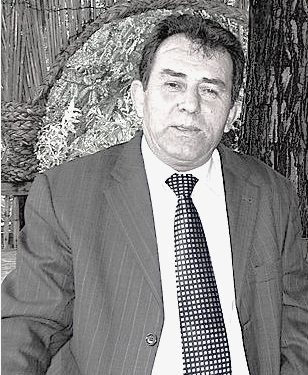
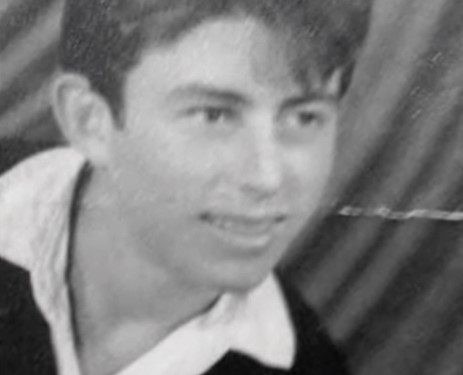
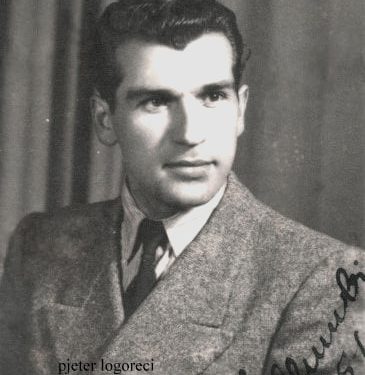

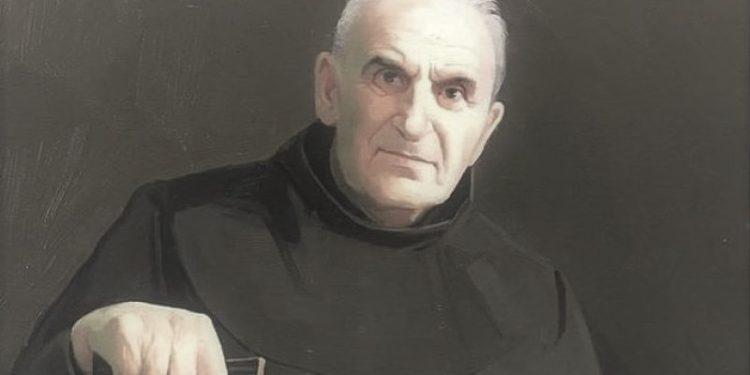
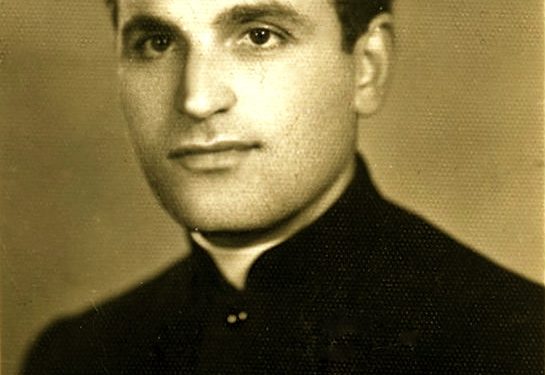
![“When the party secretary told me: ‘Why are you going to the city? Your comrades are harvesting wheat in the [voluntary] action, where the Party and Comrade Enver call them, while you wander about; they are fighting in Vietnam,’ I…”/ Reflections of the writer from Vlora.](https://memorie.al/wp-content/uploads/2025/06/admin-ajax-4-350x250.jpg)


![“The ensemble, led by saxophonist M. Murthi, violinist M. Tare, [with] S. Reka on accordion and piano, [and] saxophonist S. Selmani, were…”/ The unknown history of the “Dajti” orchestra during the communist regime.](https://memorie.al/wp-content/uploads/2026/02/admin-ajax-3-350x250.jpg)
![“In an attempt to rescue one another, 10 workers were poisoned, but besides the brigadier, [another] 6 also died…”/ The secret document of June 11, 1979, is revealed, regarding the deaths of 6 employees at the Metallurgy Plant.](https://memorie.al/wp-content/uploads/2026/02/maxresdefault-350x250.jpg)

